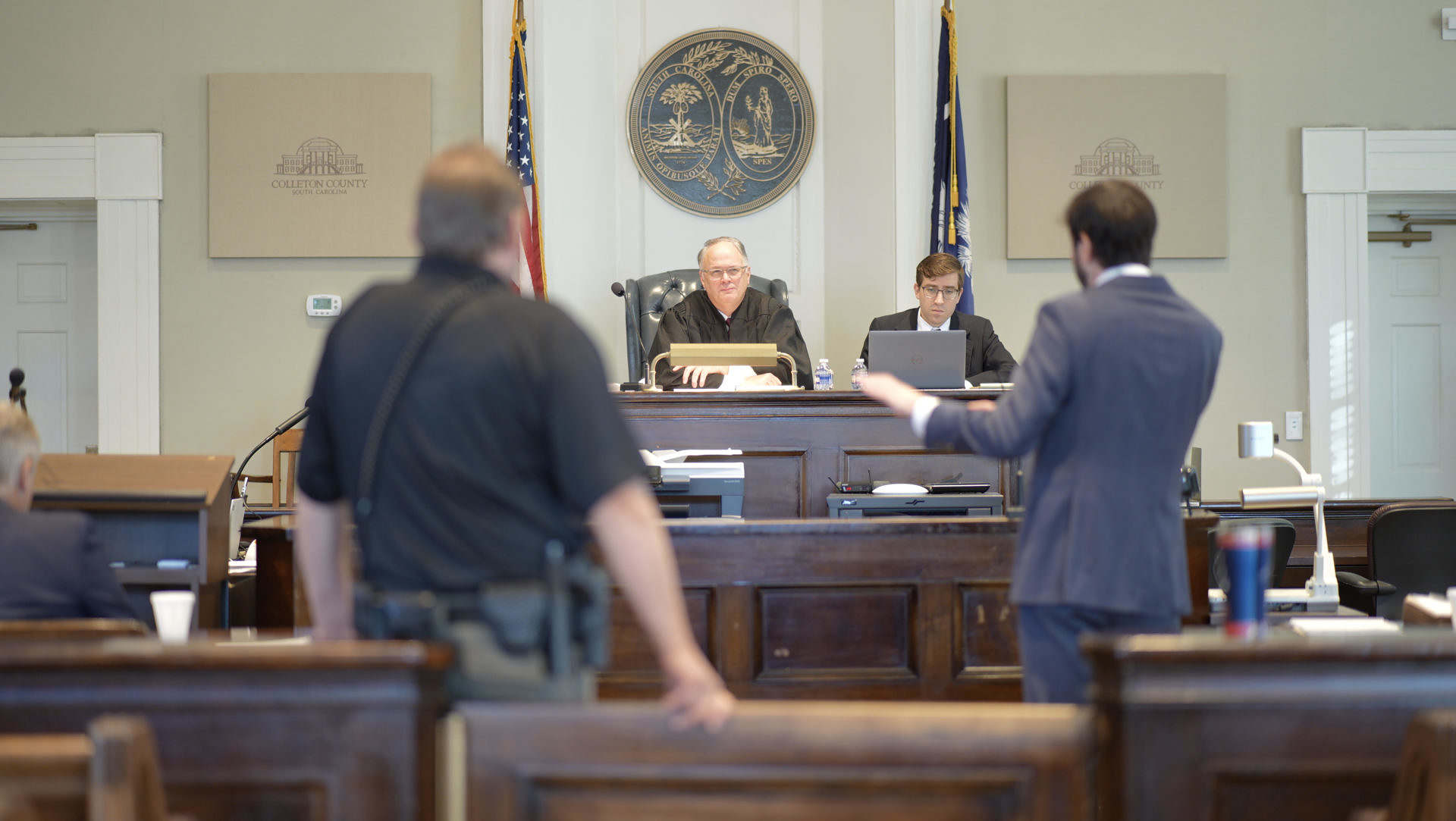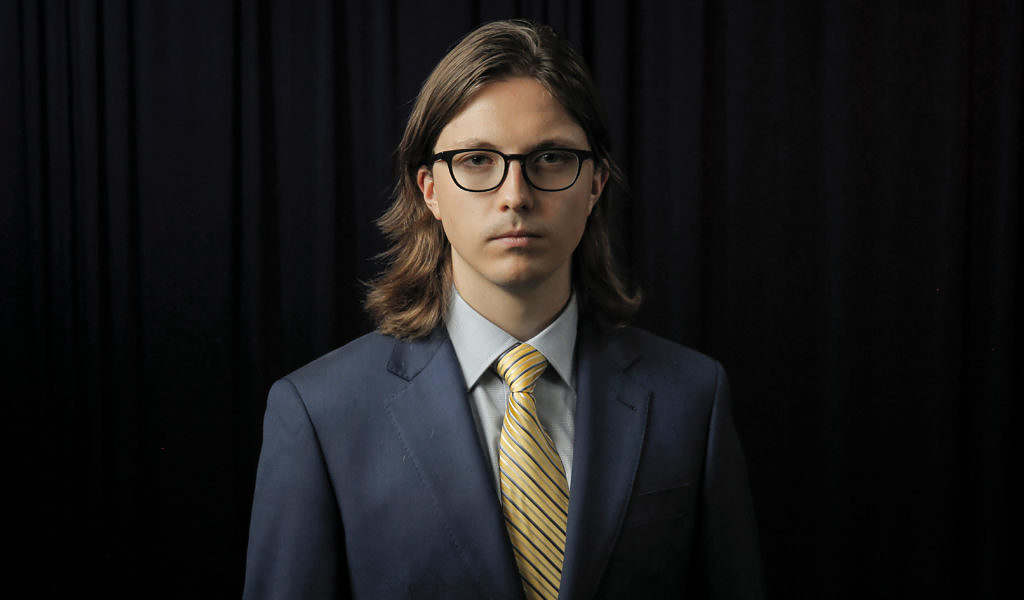|
Getting your Trinity Audio player ready...
|
A public defender representing 34-year-old grocery store butcher Ryan L. Manigo – who stands accused of slaughtering six people in the horrific ‘Green Pond Massacre’ earlier this year – argued the accused killer’s jail house phone calls are not subject to Freedom of Information Act (FOIA) requests during a hearing before circuit court judge Robert Bonds on Thursday (October 19, 2023).
The hearing – which took place at the Colleton County courthouse in Walterboro, S.C. – came on the heels of an August motion (.pdf) from attorney Matthew Walker of the S.C. fourteenth circuit public defender’s office. Walker filed the motion on Manigo’s behalf after multiple media outlets requested copies of his detention center calls.
Walker’s motion called for media agencies who issued FOIA requests to participate in a hearing so the judge might make individual decisions on the requests.
“(Manigo) objects to the release of any of his recorded communications being held by the Colleton County detention center without a hearing where the defense, an agent of the Colleton County detention center, and the requestor can be present so that the Court can determine whether the release of any communications through FOIA is appropriate,” Walker noted in his filing.
FITSNews has been at the vanguard of this legal issue in South Carolina. We were first to publish Alex Murdaugh‘s pretrial phone calls with multiple members of his family – calls which exposed an alleged attempt to unethically readmit his surviving son, Buster Murdaugh, into the University of South Carolina law school.
(Click to view)
After multiple media outlets successfully obtained Murdaugh’s jail house calls, attempts to obtain similar records in other cases were successfully undertaken. For example, former S.C. chief justice Jean Toal ruled three months ago that jail house calls featuring Jamie Lee Komoroski – the defendant in a high-profile felony driving under the influence case in Charleston County – were subject to FOIA after Komoroski’s attorneys argued the calls should be kept private.
S.C. fourteenth circuit solicitor Duffie Stone – whose office is prosecuting Manigo – said that given his role as prosecutor he wouldn’t be able to effectively advocate on behalf of the media organizations seeking Manigo’s records. While the defense team argued the solicitor could speak on behalf of the press, Bonds decided to set a hearing for this coming Tuesday (October 24) at 2:00 p.m. EST so that media organizations would have the opportunity to bring attorneys to make their arguments to the court.
Our media outlet and its legal representatives will attend that hearing.
The defense’s motion to preemptively block the release of materials circumvents the usual FOIA legal process. Typically a request is either approved or denied by the agency which receives the request, affording media agencies the ability to appeal any denial they feel is unfair. Walker’s motion leaves the status of the calls in limbo.

***
County officials were understandably reluctant to approve or deny the release of the tapes knowing a hearing to address the issue had been scheduled – but in failing to formally deny the release of the tapes, media agencies were never formally brought into the litigation. As a result, they were not represented at today’s hearing.
Next week’s showdown will likely yield a ruling further clarifying the applicability of FOIA to pre-trial detention center phone calls – but it is unlikely to be the last legal battle waged to resolve this issue. Until an appellate court ruling sets precedent – or the S.C. General Assembly modifies the law – this issue will likely be litigated repeatedly at the circuit court level, and for good reason.
“Taped conversations from inmates are public records,” noted Jay Bender, a retired law professor with years of experience litigating public records access cases.
Bender said he has been following the Manigo case.
Media agencies rightfully argue the current statute provides no explicit exception for communications made by defendants awaiting trial – but defense attorneys have pushed back citing their legitimate interest in protecting the presumption of their client’s innocence and their constitutional rights. There is certainly an argument to be made that the release of these records are violative of a defendant’s rights – but the current statute does little to shield defendants from the publication of this information.
Attorney Mark Peper, who successfully litigated the release of the Komoroski calls, has confirmed to this news outlet that he will represent WCSC TV-5 (CBS – Charleston, S.C.) in this case – and that he may be representing additional parties by Tuesday.
Stay tuned for much more on this unfolding debate next week …
***
ABOUT THE AUTHOR …
(Via: Travis Bell)
Dylan Nolan is the director of special projects at FITSNews. He graduated from the Darla Moore school of business in 2021 with an accounting degree. Got a tip or story idea for Dylan? Email him here. You can also engage him socially @DNolan2000.
***
WANNA SOUND OFF?
Got something you’d like to say in response to one of our articles? Or an issue you’d like to address proactively? We have an open microphone policy! Submit your letter to the editor (or guest column) via email HERE. Got a tip for a story? CLICK HERE. Got a technical question or a glitch to report? CLICK HERE.


